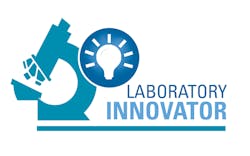Early career in food chemistry grows into enzymology-based diagnostics company
My training and expertise are in enzymology, beginning with my graduate school and followed by my post-doc research, as well as my pharmaceutical research experiences. Since one of the major platforms in clinical diagnostic testing is enzyme-based assays, it was very natural for me to apply my enzymology knowledge in assay development to clinical diagnostic applications.
As a professor at the University of Kansas in the Department of Pharmaceutical Chemistry, as well as senior scientist at Tanabe Pharmaceuticals, how did those experiences assist you when you decided to start your own diagnostics company? What were your takeaways from the earlier experiences?
My research projects both at the university level and in the pharmaceutical company were enzyme-based drug design. The projects utilized my enzymology skills to elucidate the drug and enzyme target reaction mechanism, and design more potent enzyme inhibitors as potential drug candidates. The idea of substrate-trapping enzyme technology was conceived while I was working on a drug design project in the pharmaceutical industry.
When Diazyme began in 1999 with “substrate trapping enzyme technology to measure small molecular biomarkers such as homocysteine, hormones, and vitamins,” what did you envision beyond that for the future of the company, based on the needs of the lab industry at that time?
We know that small molecules do not have immunogenicity, and therefore, it is hard to raise antibodies against small molecules for immunoassay uses. To solve this problem, I specifically engineered enzymes that retain their substrate binding affinity and specificity, but have their catalytical activity abolished, which may serve as small molecule binders (substrate trapping enzyme) for use in small molecule biomarker assays. In the human body, there are a lot of metabolites that are small molecules and they act as important surrogates of diseases that need to be controlled. Therefore, there is always a need in clinical diagnostics for a better method to detect small molecular biomarkers.
In your opinion, what is the most challenging issue currently facing the clinical lab industry, and can you suggest any possible solutions to address how to eliminate the problem?
One of the challenges in clinical diagnostics is to identify specific biomarkers for specific diseases using specific and robust assay methods. More basic academic-level research is needed to identify more disease-related biomarkers that can help make early and accurate diagnosis of diseases a reality.
Looking to the near future and the COVID-19 pandemic, what do you see as a probable and/or viable way to slow the reported case numbers that are increasing on a global basis?
Regarding the prevention of COVID-19, practicing social distancing and wearing face masks have proven to be effective and are something everyone can do. Fast turnaround time in reporting test results is the key to reducing the spread of the disease. When a vaccine is ready for the general population, neutralizing antibody tests will be highly in demand for confirmation of the effectiveness of vaccines in each vaccinated individual to make sure a sufficient amount of neutralizing antibodies have been generated in the body to fight off the viral infection.
Where do you see the clinical lab industry in the next five to 10 years in terms of the increased use of automation and artificial intelligence (AI) in the lab?
Lab automation is an ongoing process, and more and more large- and medium-sized clinical laboratories will be equipped with fully automated lab testing systems to improve the efficiency of lab operations and cost savings, as well as to improve test result turnaround time and test quality. Eventually, fewer and fewer manual steps will be involved in lab operations. Artificial intelligence (AI) will help leverage human knowledge, wisdom, and experience. Instead of replacing doctors, AI algorithms might work best alongside them in healthcare.






